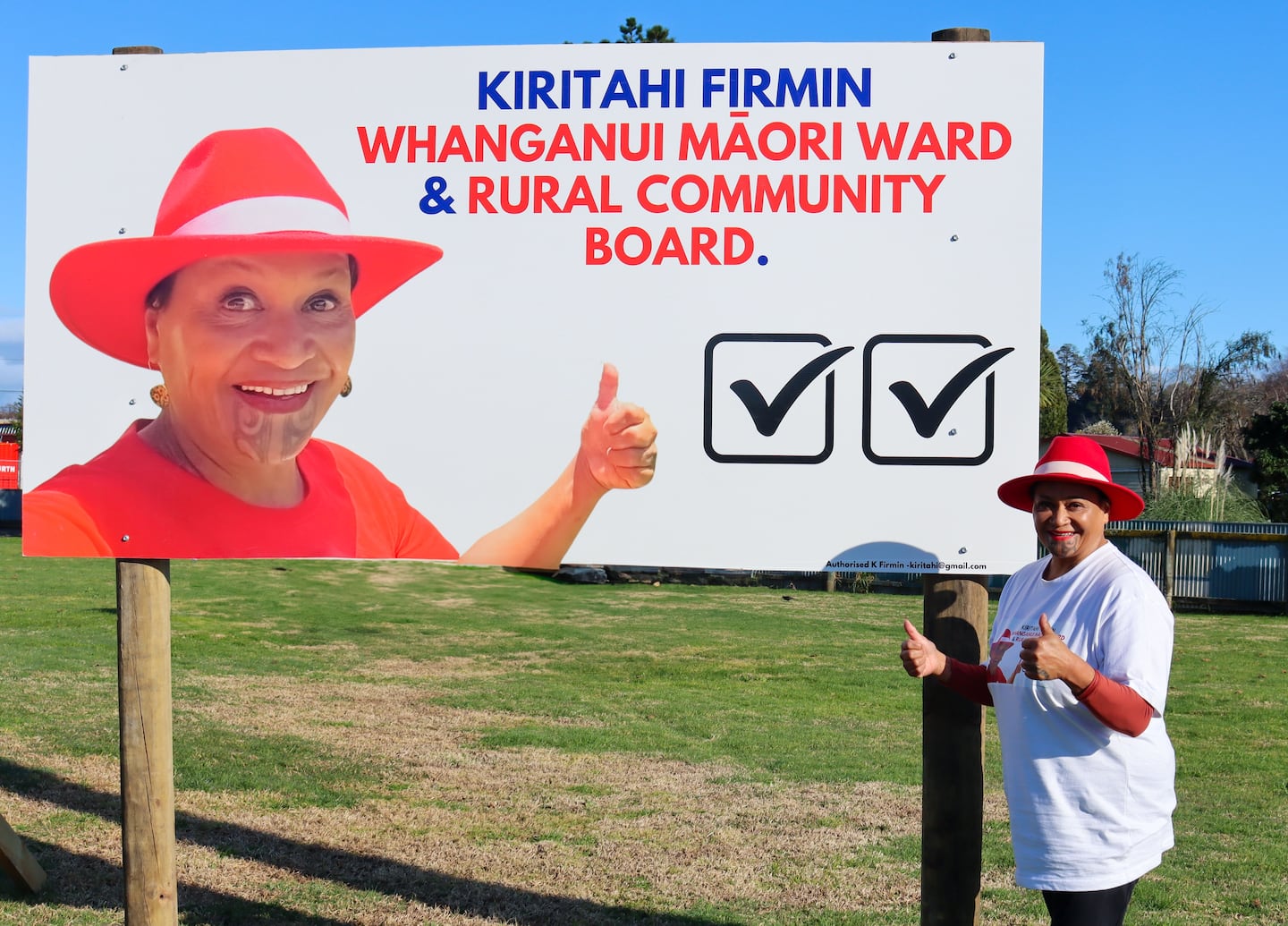The count for early voting in Whanganui’s local elections has nearly doubled after orange ballot bins were cleared for the first time, but voter turnout is still lagging in the district’s new Māori ward.
On Tuesday, only 142 votes (2.95%) had been cast from a pool of 4810 electors on the Māori roll and 798 (2.78%) votes were counted from a total of 28,695 general ward electors.
The total vote count for Whanganui has now increased to 1804 (5.38%), jumping by 864 votes from total of 33,505 electors.
Of these, 786 votes were received for the general ward, taking the tally to 1584, or 5.52% of 28,695 general ward electors.
In the Whanganui Māori ward, the cumulative return rose by 78 votes to 220, or 4.57% of the 4810 electors on the Māori roll.
Four candidates are standing at large for the Whanganui mayoralty, while 23 candidates are vying for 10 seats in Whanganui District Council’s general ward. Five candidates are standing for the first two seats on the Māori ward.
The Māori ward is being contested for the first time but turnout is tracking below that of the general ward.
The small bump in returns has done nothing to quell local concern about whether Māori voters are engaging with the election.
Māori ward candidate Kiritahi Firmin said she was stepping up her campaign strategy in response to the low returns.
“As a serious candidate, I’m out there asking our whānau for their vote. Even within my own whānau, I’m lighting a fire under our bums to vote wisely, and [post] them when they say they will.”
Alongside voting for mayor, councillors and community boards, voters are being asked to decide whether or not the new Māori ward should continue after the next three-year term.
Referendums on whether to keep dedicated Māori wards and constituencies on local councils are being held across the country for 37 local councils and five regional councils – in total, 42 councils.
Firmin said many people were “still getting their head around” what a referendum means and lacked the confidence to engage.
“Many of our people have been let down far too much to trust and believe local and national politics. We don’t see ourselves as the solution when we’re left out of the picture.”
Firmin said she was surprised at the sluggish returns when tens of thousands of Māori mobilised to join last November’s Hīkoi mō te Tiriti.
“This action should have encouraged us to vote. But look what’s happened – we were taken off the roll, then taken out of the voting papers.
“We don’t trust the process.”
Earlier this year, the chief electoral officer Karl Le Quesne rejected a flood of claims that Māori enrolment details had been changed without people’s consent.
Le Quesne said in August it was likely those who could not find their details online were on the dormant roll, which holds voters who have been removed from the main roll for their electorate because they no longer live at an address and have not updated their enrolment details.
Voting papers delivered in Whanganui earlier this month omitted the official statements of the five Māori ward candidates – Kiritahi Firmin, Julie Herewini, Geoff Hipango, Hayden Potaka and Phil (Bear) Reweti – from the candidate booklet sent to every voter. They were later posted out, but only to voters on the Māori roll.
Firmin said councils, election providers and the Government were not doing enough to lift participation in local elections.
“But there is still time if we all become voting champions within our own whānau to get our people voting. Your voice does count. Your whakaaro does matter.”
LDR is local body journalism co-funded by RNZ and NZ On Air




